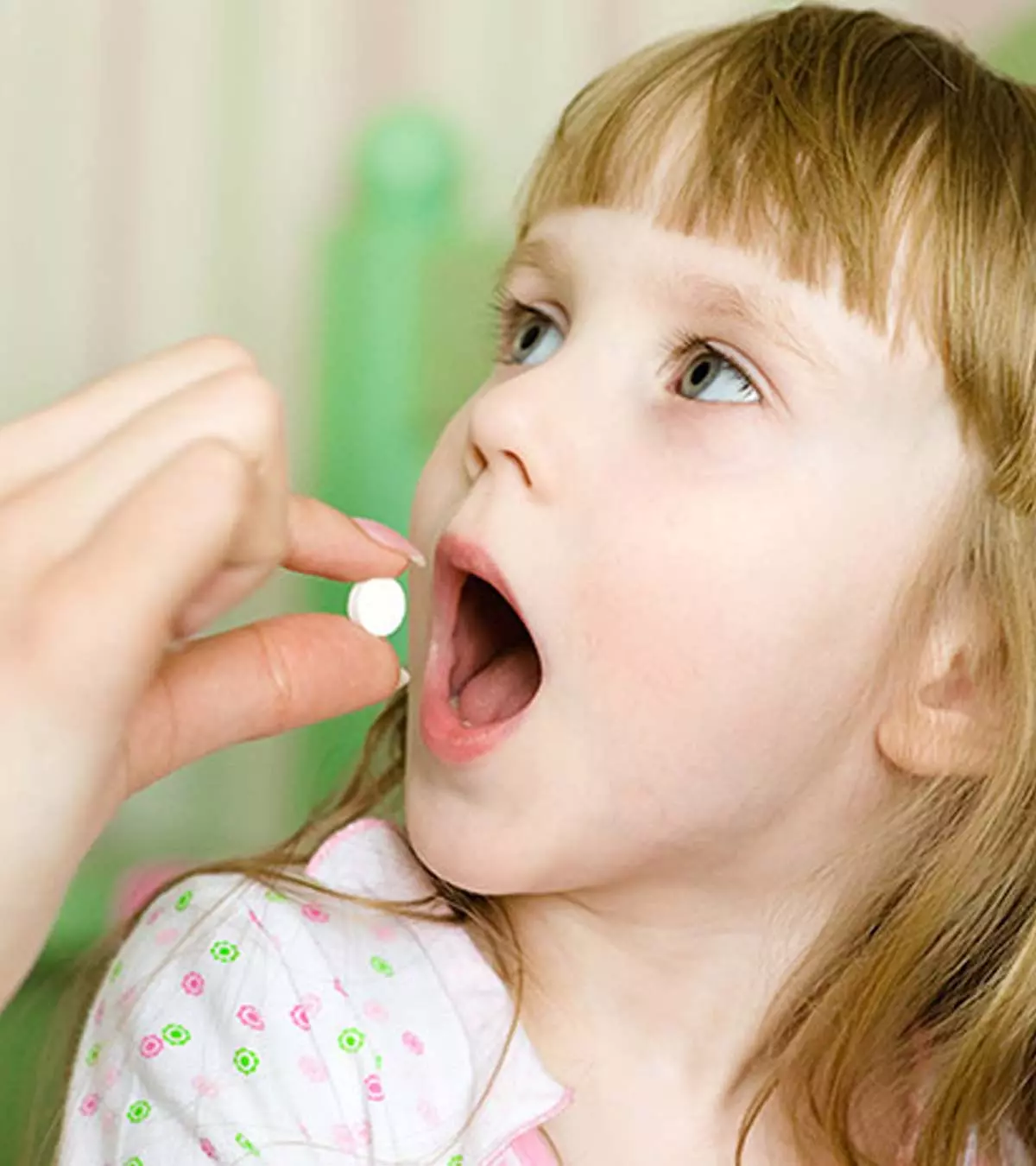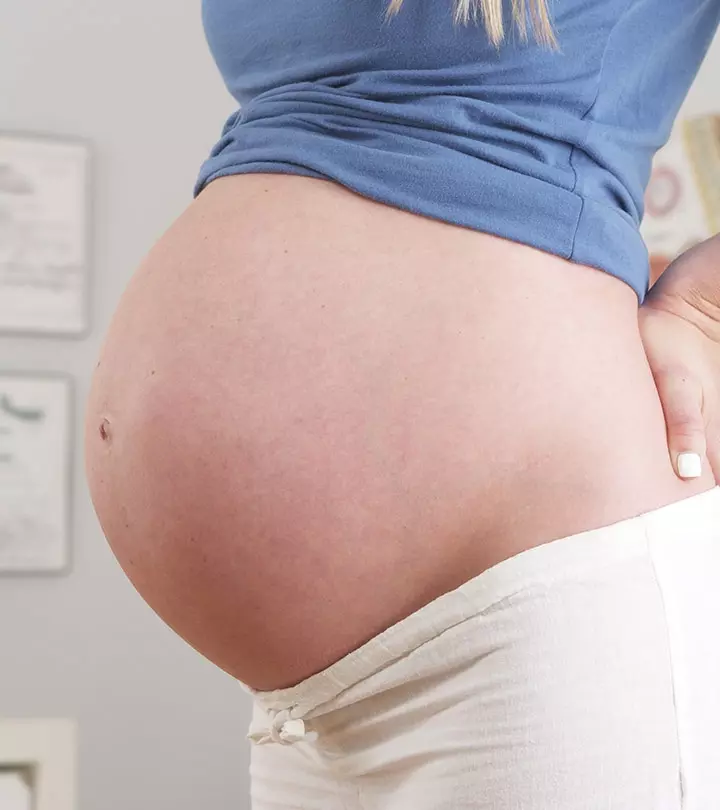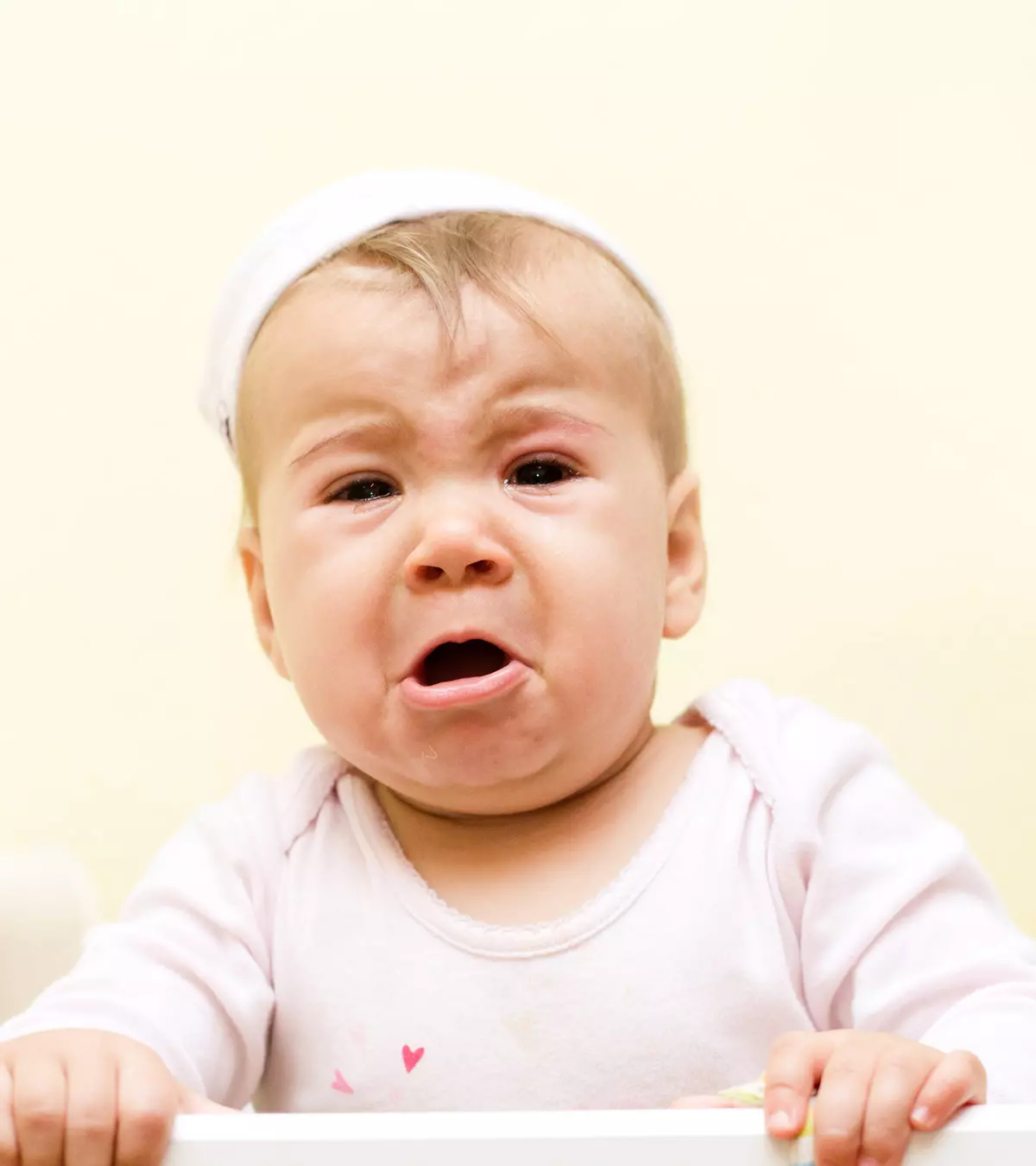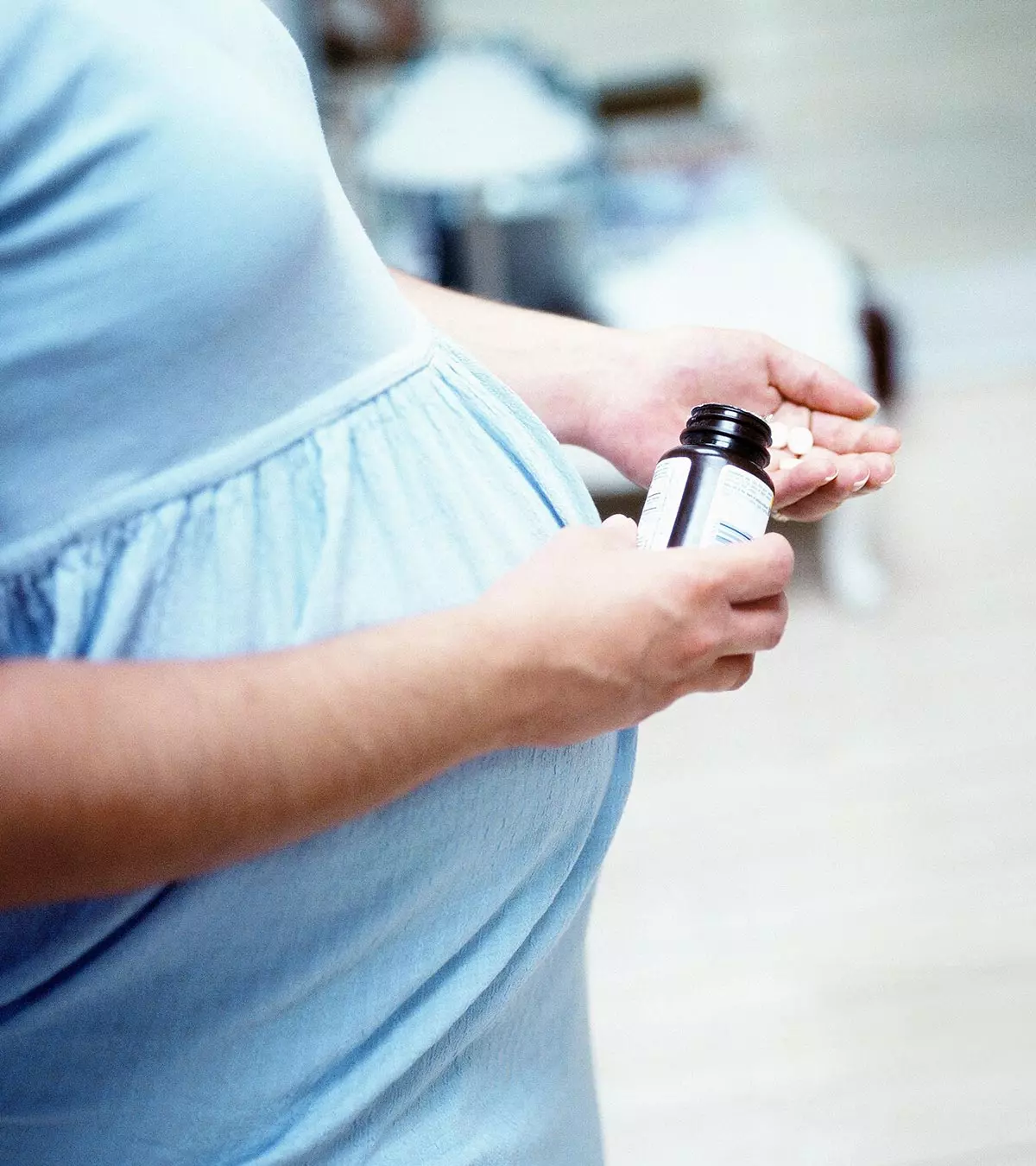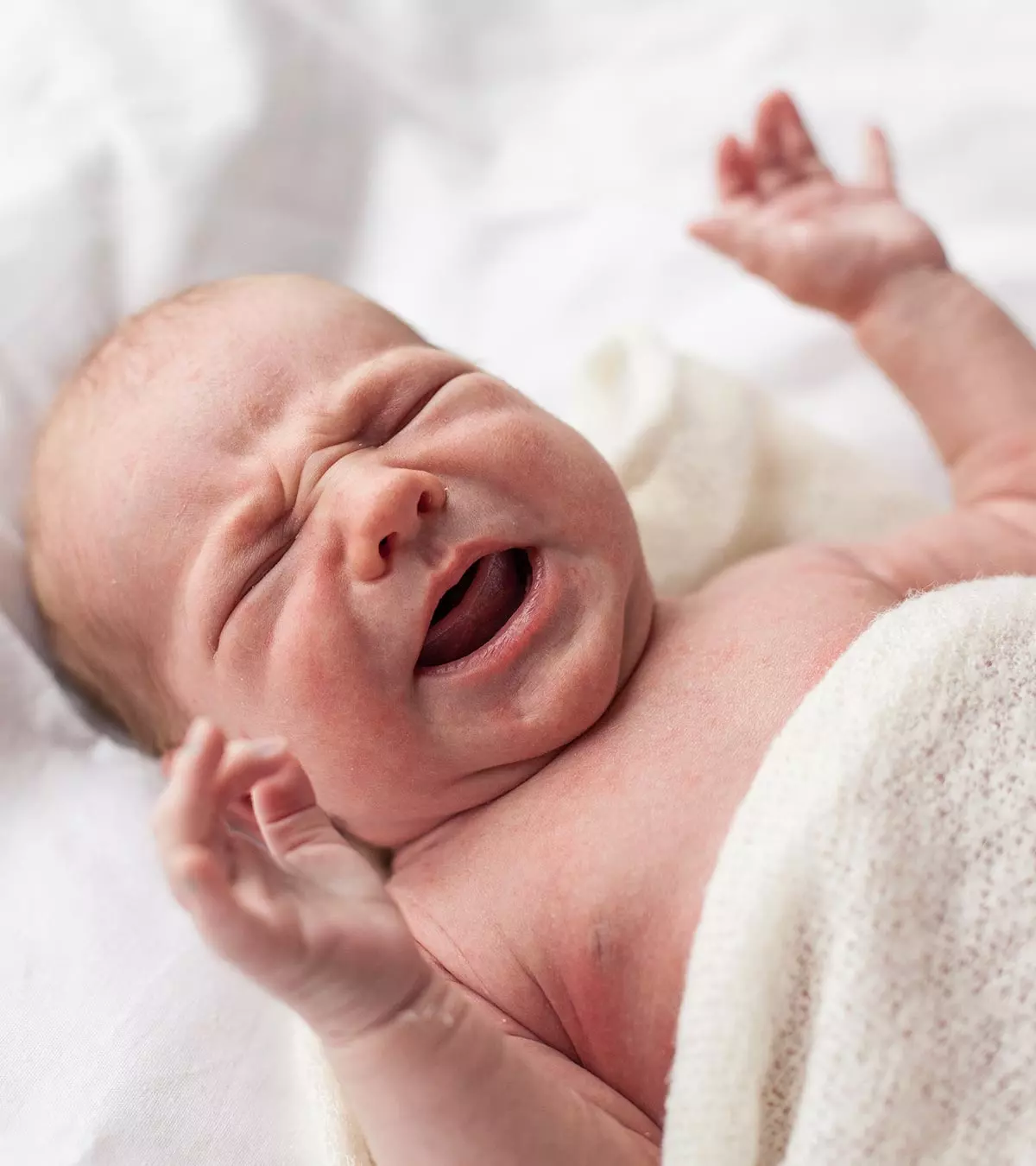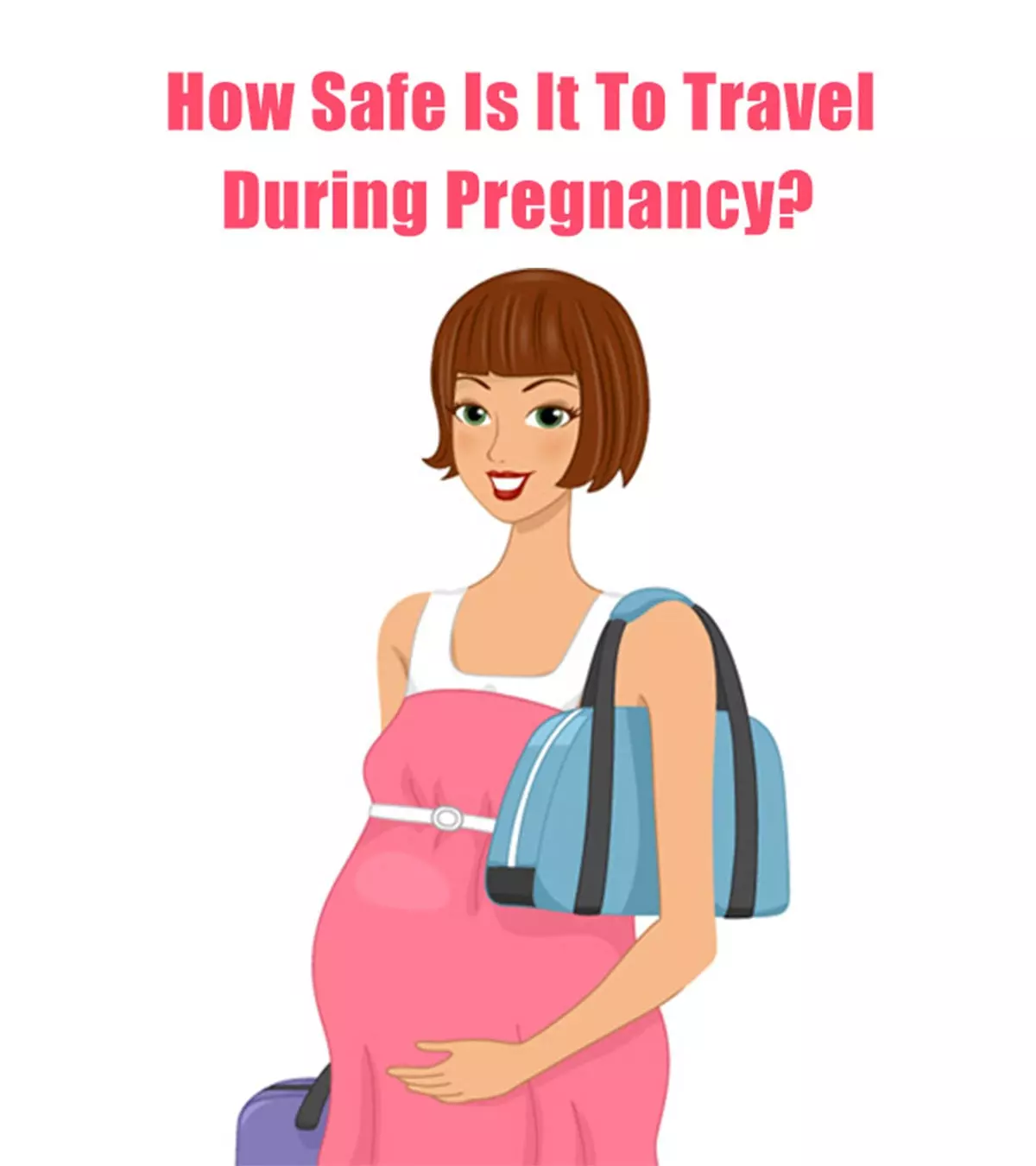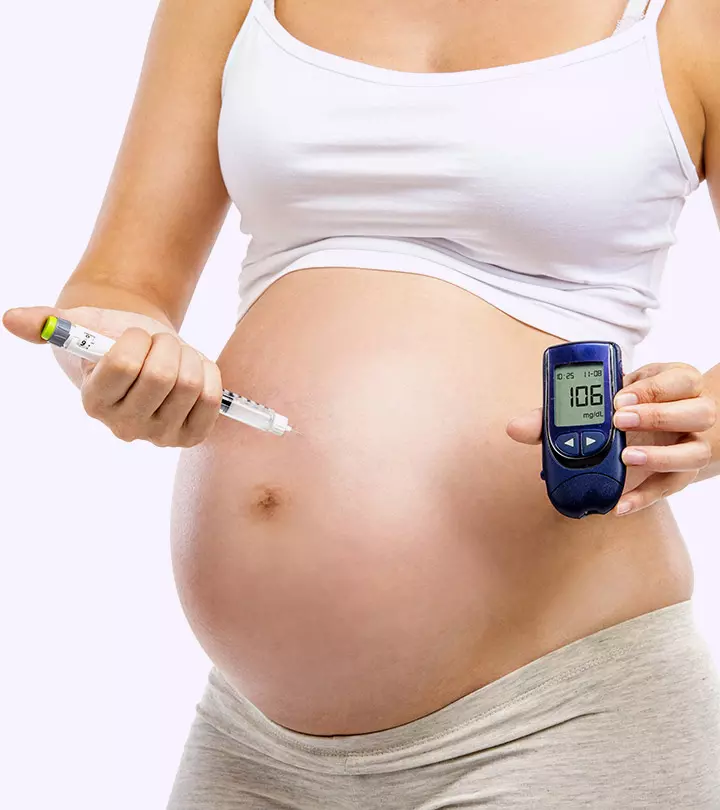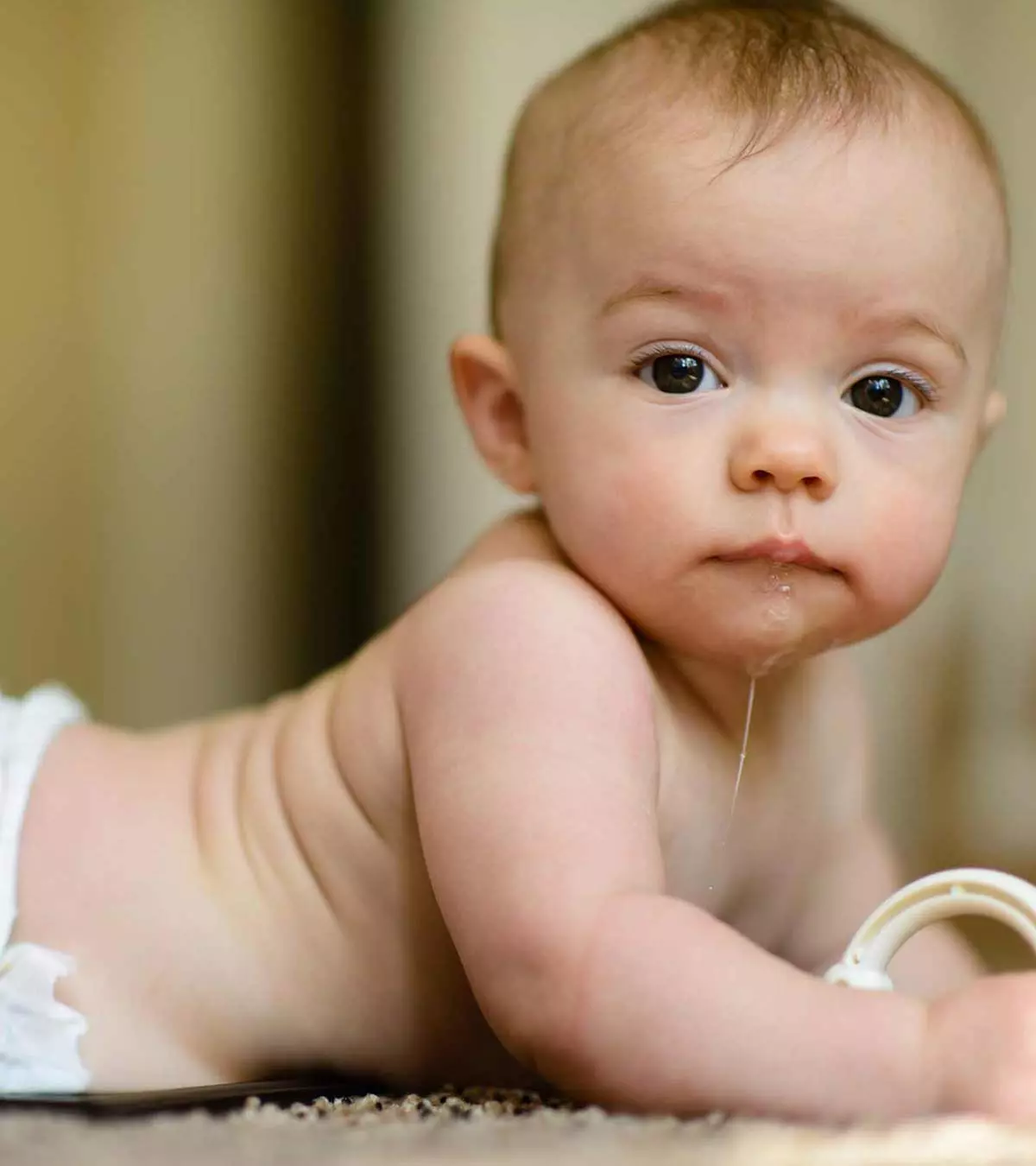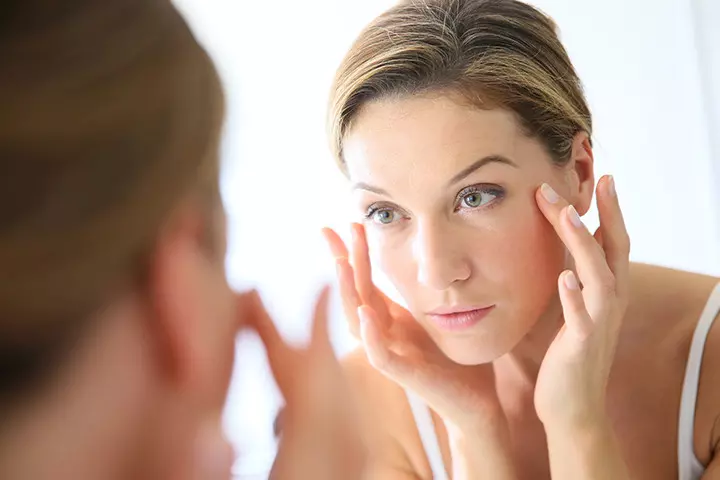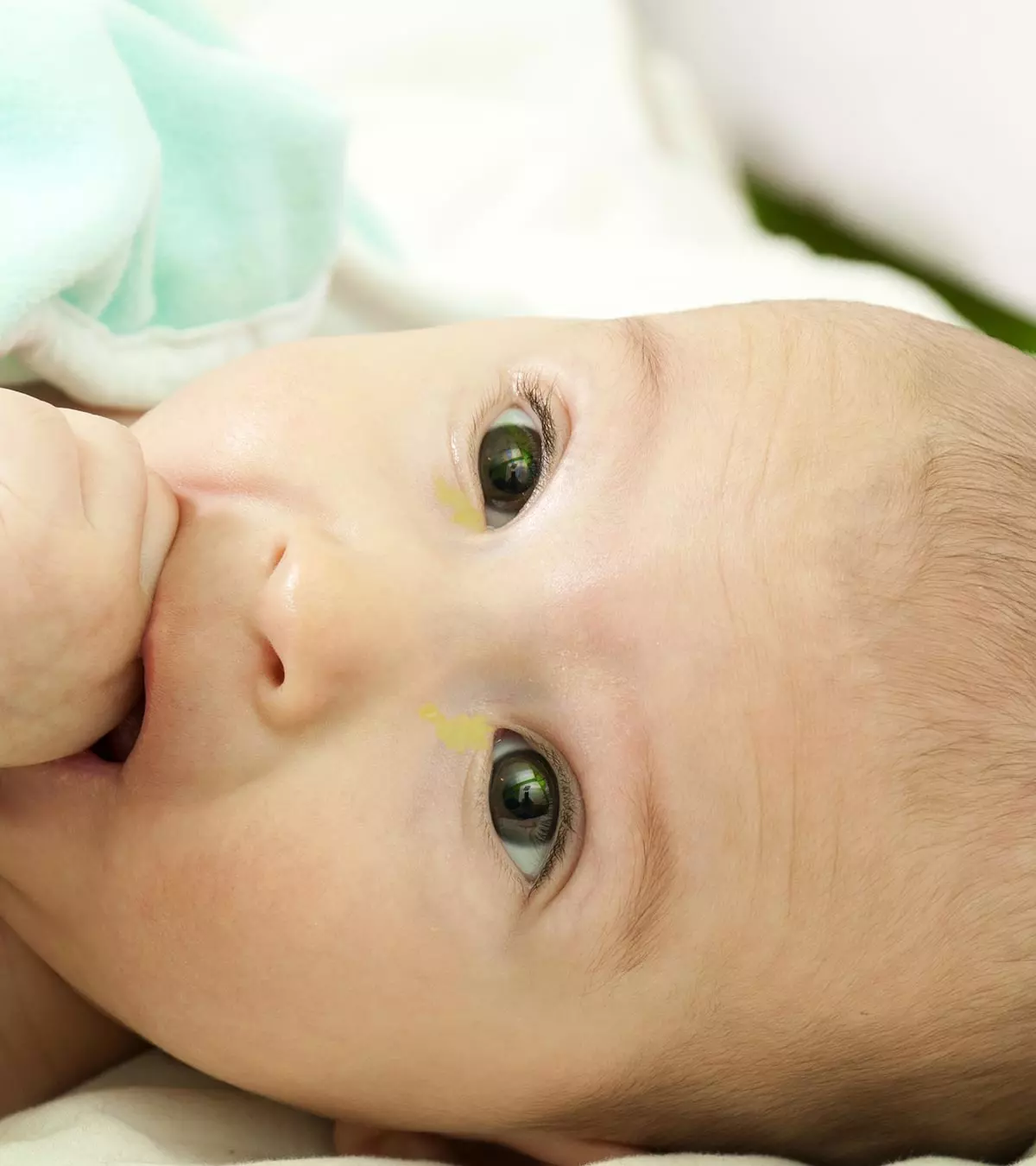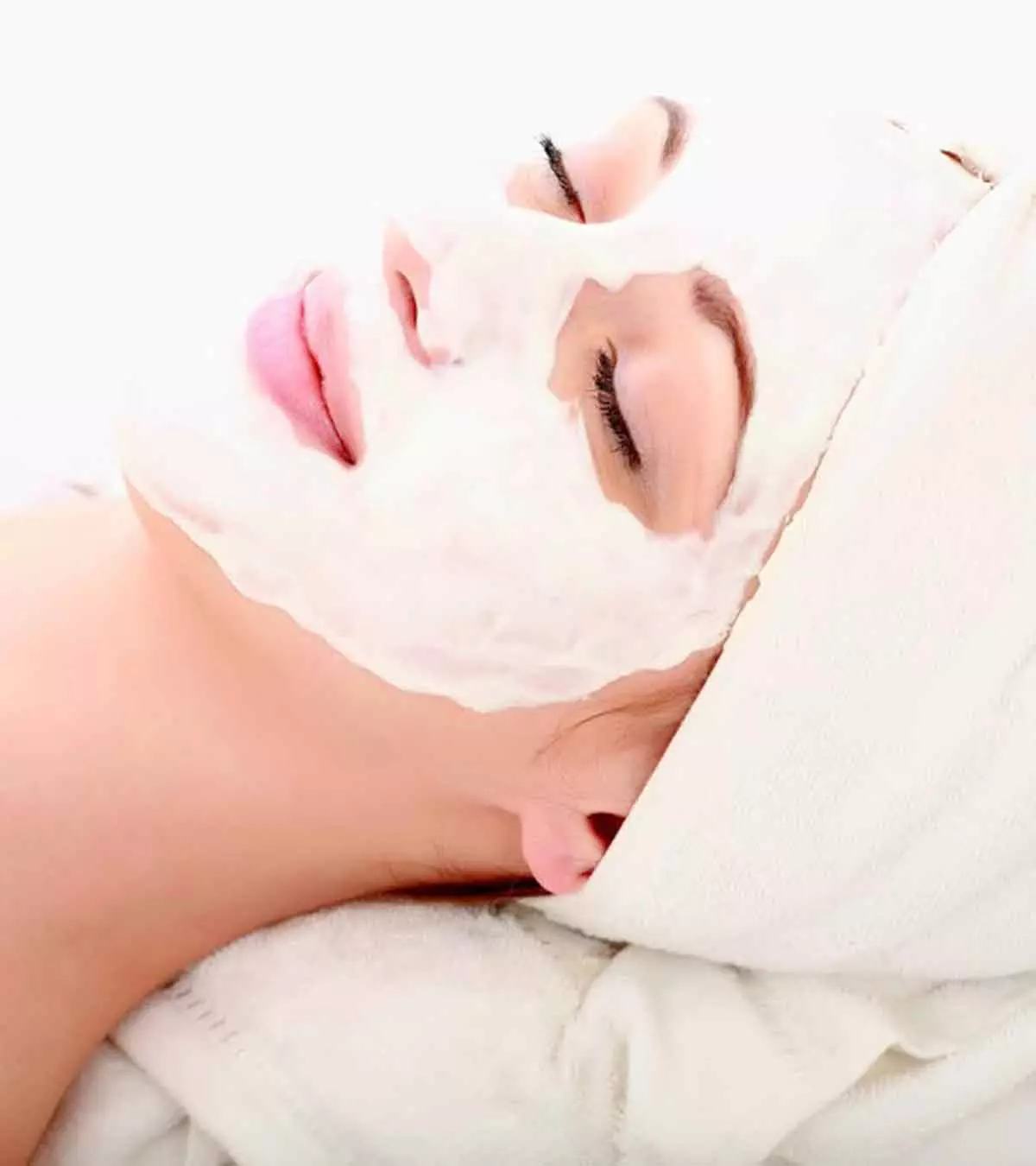
Image: ShutterStock
During pregnancy, hormonal changes can lead to increased facial hair growth, prompting many women to opt for bleaching. Although bleaching facial hair during pregnancy is usually not considered harmful for the growing baby, you should exercise caution, as the process may involve certain chemicals. Any chemical applied to the skin may get absorbed. Further, the skin may also react differently during this time. Safety is paramount when using any chemical products during this period.

Read on as we discuss the safety of using facial bleach in pregnant women and natural ways to help you in your beauty skin care regime.
Key Pointers
- It is not advisable to use bleach or other chemicals during pregnancy, especially in the first trimester.
- If necessary, use a good quality product and appoint a professional to perform the task.
- Doing a patch test and using a thoroughly ventilated room can reduce the risks associated with bleaching.
- Refrain from using bleach if there are rashes on the skin.
- Symptoms of bleach poisoning include chest tightness, shortness of breath, rashes, problems with vision, nausea, and vomiting.
- Consult a doctor before using bleach when pregnant, as the chances of its absorption through the skin are high.
Face Bleach During Pregnancy
Research findings generally consider facial bleaches to be safe and are not known to cause any potential harm to the small life developing inside you.
- To be on the safe side, it is always better to avoid any cosmetics containing chemicals when you are pregnant.
- Anything you do at this stage can affect your baby’s health. So, it is always better to be careful.
If you want to bleach your facial hair, here is some info about it.
Tips On Facial Bleaching During Pregnancy
Proceed by understanding your skin type. The rate of absorption in your skin may not be the same as it was for others. Additionally, your skin gets even more sensitive when you are pregnant. Thus, make sure to be extra careful.
Below are mentioned some vital tips that you can keep in mind while bleaching your facial hair:
- Bleach is a chemical. If you consider using this in the second trimester, get the “go ahead” sign of your doctor.
- Rinse your face with cold water to close the open pores slightly. This way you can ensure too many chemicals do not hamper your pregnancy skincare routine.

- Appoint a professional to apply bleach on your skin.
- Make sure to use only branded bleach rather than the cheap variants as they may lead to skin damage.
- Sit in an open space with sufficient ventilation.
- Go for a patch test first. If you notice any irritation or rash, refrain from bleaching.
- Do apply any bleach if there are rashes on your skin. Follow this strictly.
- Remove the cream and do not allow it to sit on your skin for long.
 Quick tip
Quick tipNatural Ways To Bleach Facial Hair
As they don’t have any side effects, following the natural alternatives to bleaching methods is best when you are pregnant.
- One of the most popular home remedies is to use honey with lemon.
- Tomato juice also helps lighten facial hair.

- Papaya pulp with milk can be a good natural bleaching agent.
- Potatoes act as a natural bleach, making hair less visible.
- Oatmeal may help hydrate and exfoliate the skin while reducing redness.
 Quick tip
Quick tipRisks Of Bleaching Facial Hair During Pregnancy
Florida-based physician Dr. Matthew Casavant says, “Bleaching facial or stomach hair during pregnancy is a common concern among expectant mothers. The primary ingredient in most bleaching products is hydrogen peroxide, which, in high concentrations, can pose risks. However, most over-the-counter facial hair bleaching products are considered safe if used as directed because the skin absorbs very little of the chemicals. It’s crucial, though, to avoid using these products in a poorly ventilated area to minimize inhalation of fumes.”
Since bleach is a chemical substance, there always remains the risk of applying chemicals in pregnancy. Here are the reasons why:
- You are in your most crucial period in the first trimester. It is better if you rest your bleaching schedule during the first trimester.
- This is the time of organogenesis for your baby. Babies are at maximum risk at this stage.
- It is also a good idea to avoid applying any sorts of chemicals that shall seep through the pores of your skin.
- You may feel like vomiting with the fumes and smells of chemicals.
- Shaving, tweezing or waxing are some options that you can try at this stage.
- The presence of ingredients such as ammonia and hydrogen peroxide in bleaching creams cause irritation or redness of skin.
- Avoid direct sun exposure to UV rays after bleaching as it may lead to a severe form of skin cancer, called melanoma. Data released by the United States Cancer Statistics (USCS) show that in the year 2025, 77,230 new cases of melanoma of the skin were reported. For every 100,000 people, 20 people were affected by this condition.
 Point to consider
Point to considerSymptoms Of Bleach Poisoning

If you are using bleaching creams for removing facial hair in pregnancy, you must be aware of the bleach poisoning symptoms.
- Problems in breathing, including wheezing and coughing is a symptom of bleach poisoning.
- Tightness in chest.
- Shortness of breath.
- Rashes in your skin or eye troubles.
- Nausea and vomiting.
Frequently Asked Questions
1. Can inhaling bleach fumes harm my unborn baby?
There is no specific evidence that inhaling facial bleach fumes harm the mother or the baby. Nevertheless, inhaling excess facial bleach fumes might be harmful. Accidental ingestion and splashing of bleach on the eyes may even lead to hair bleach poisoning, which may lead to several complications (1).
2. Can bleaching body hair during pregnancy harm my baby?
According to research, topical application of bleach in moderation is unlikely to cause any harm to the expectant mother and the baby (2). However, it is best to consult your dermatologist before using bleach on your body for your pregnancy health.
3. Can I use bleach on my pregnancy-induced melasma?
Generally, individuals with melasma (caused due to the overproduction of melanin), may use bleaching cream to lighten darker areas (3). However, doing so during pregnancy warrants medical guidance.

Bleaching facial hair during pregnancy is not recommended since it is best to avoid procedures requiring chemicals in this period. Nevertheless, if you still want to bleach your facial hair when pregnant, take the required precautions. Although there is no proof that bleaching negatively affects the baby, your skin sensitivity may react adversely in the form of dermatitis or allergies. Therefore, get your doctor’s approval, hire a professional, and conduct a patch test before proceeding. You could also consider naturally bleaching your facial hair with papaya juice or a mixture of honey and lemon.
Infographic: Tips On Facial Bleaching During Pregnancy
Facial bleaching involves using chemicals to lighten the skin on your face. Therefore, it is usually not recommended during pregnancy, especially during the first trimester. However, if your doctor gives you the go-ahead, you may try the procedure after following specific safety measures, as detailed in our infographic.
Some thing wrong with infographic shortcode. please verify shortcode syntax
Some thing wrong with illustration image shortcode. please verify shortcode syntax
References
- Hair bleach poisoning.
https://medlineplus.gov/ency/article/002702.htm - Pina Bozzo et al.; (2011); Safety of skin care products during pregnancy.
https://www.ncbi.nlm.nih.gov/pmc/articles/PMC3114665/ - Melasma.
https://www.ncbi.nlm.nih.gov/books/NBK459271/ - Pregnancy and Skin Changes.
https://www.stanfordchildrens.org/en/topic/default?id=pregnancy-and-skin-changes-134-7
Community Experiences
Join the conversation and become a part of our nurturing community! Share your stories, experiences, and insights to connect with fellow parents.
Read full bio of Kay Lakka
- Dr. Matthew Casavant is the founding physician of South Lake OB/GYN & Advanced Surgery. He received his medical degree from Nova Southeastern University in South Florida and completed his residency as an Ob/Gyn at St. Vincent’s /Mercy Hospital in Toledo, OH. Dr. Casavant also holds a BS degree in Micro and Molecular Biology.
 Dr. Matthew Casavant is the founding physician of South Lake OB/GYN & Advanced Surgery. He received his medical degree from Nova Southeastern University in South Florida and completed his residency as an Ob/Gyn at St. Vincent’s /Mercy Hospital in Toledo, OH. Dr. Casavant also holds a BS degree in Micro and Molecular Biology.
Dr. Matthew Casavant is the founding physician of South Lake OB/GYN & Advanced Surgery. He received his medical degree from Nova Southeastern University in South Florida and completed his residency as an Ob/Gyn at St. Vincent’s /Mercy Hospital in Toledo, OH. Dr. Casavant also holds a BS degree in Micro and Molecular Biology.
Read full bio of Rebecca Malachi
Read full bio of Swati Patwal
Read full bio of Aneesha Amonz






